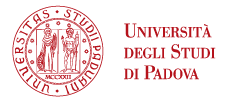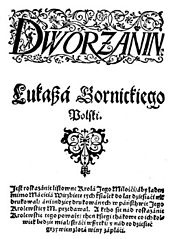The period of Jan Zamoyski’s growing and education was The Renaissance. In those times Italy was the main source of knowledge about the ancient world. Humans were fascinated about ancient Rome, ancient philosophy, mentality and knowledge. They wanted to explore the ancient world and educate the younger generation.
 One of those young enthusiasts of Antiquity was a Polish citizen Jan Zamoyski. In 1559 he arrived at the University of Padua and started his education. He was studying there Latin and Greek philology, philosophy, law and literature under the close protection of Carlo Sygonio – the biggest expert of the ancient world. At the age of 21 he acquired the honorary position of rector of the lawyers academy. While he was studying, he also wrote his first publication – “De senatu romano”.
One of those young enthusiasts of Antiquity was a Polish citizen Jan Zamoyski. In 1559 he arrived at the University of Padua and started his education. He was studying there Latin and Greek philology, philosophy, law and literature under the close protection of Carlo Sygonio – the biggest expert of the ancient world. At the age of 21 he acquired the honorary position of rector of the lawyers academy. While he was studying, he also wrote his first publication – “De senatu romano”.
 In 1565 he come back to Poland with a recommendation letter from Venetian Senate to The Polish King. He received the post of royal secretary and the important task of organizing the royal archive, where he read plenty of ancient documents and expanded his knowledge in various fields. Jan Zamoyski was not only a secretary and royal adviser, but also a commander of the army. He commanded, among other things, the battle of Byczyna and the siege of Pskov. He was appointed by the king the royal chancellor and at the age of 39 he was the Grand Crown Hetman. Padua’s education and work experience at the court are the image of a courtier ideal which was very popular in the renaissance.
In 1565 he come back to Poland with a recommendation letter from Venetian Senate to The Polish King. He received the post of royal secretary and the important task of organizing the royal archive, where he read plenty of ancient documents and expanded his knowledge in various fields. Jan Zamoyski was not only a secretary and royal adviser, but also a commander of the army. He commanded, among other things, the battle of Byczyna and the siege of Pskov. He was appointed by the king the royal chancellor and at the age of 39 he was the Grand Crown Hetman. Padua’s education and work experience at the court are the image of a courtier ideal which was very popular in the renaissance.
 He was first described by Łukasz Górnicki, polish writer and courtier, in the book “Dworzanin Polski” (“Polish Courtier”). According to Górnicki, a courtier should be educated, know many languages, especially ancient, and be fluent in Latin. What is also indispensable is the oratory talent, eloquence and the ability to conduct conversations. The noble origin of the courtier and approach to service are also important. A courtier should lead his king to virtue.
He was first described by Łukasz Górnicki, polish writer and courtier, in the book “Dworzanin Polski” (“Polish Courtier”). According to Górnicki, a courtier should be educated, know many languages, especially ancient, and be fluent in Latin. What is also indispensable is the oratory talent, eloquence and the ability to conduct conversations. The noble origin of the courtier and approach to service are also important. A courtier should lead his king to virtue.
 Jan Zamoyski is the image of this ideal. He served at the courts of three Polish Kings – Zygmunt August, Stafan Batory and Zygmunt III. Each of them appreciated his education and talent; Jan Zamoyski was their personal adviser. As a Member, he spoke languages and led the foreign and internal policy of the state, and during the talks he used his eloquence. In Padua, he learned very well the Latin language in which he published documents and conducted foreign correspondence. When we look today at the efforts of Jan Zamoyski, who started his career at our age, we see that all his achievements were primarily directed to the public good ang good of The Polish State.
Jan Zamoyski is the image of this ideal. He served at the courts of three Polish Kings – Zygmunt August, Stafan Batory and Zygmunt III. Each of them appreciated his education and talent; Jan Zamoyski was their personal adviser. As a Member, he spoke languages and led the foreign and internal policy of the state, and during the talks he used his eloquence. In Padua, he learned very well the Latin language in which he published documents and conducted foreign correspondence. When we look today at the efforts of Jan Zamoyski, who started his career at our age, we see that all his achievements were primarily directed to the public good ang good of The Polish State.

